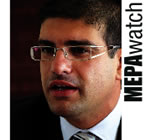
Robert Musumeci’s observations on the proposed MEPA reform – part 6 Highlights The proposed reform framework encourages enhanced dialogues between case officers and objectors to a particular development. Through this reform, this will be solicited so as to secure a holistic inclusion of all stakeholders involved in the development process. It is stated in no unclear terms that MEPA should be proactive in taking steps geared towards resolving any objections or disputes in respect of a particular application during the initial stages of the application process. Against this background, the following salient recommendations are being proposed: Robert Musumeci’s observations In the determination of his civil rights and obligations or of any criminal charge against him, everyone is entitled to a fair and public hearing within a reasonable time by an independent and impartial tribunal established by law. (Article 6 of the European Convention.) In line with this fundamental principle of Human Rights s enshrined in our Constitution, our current Development Planning Act went a step further to recognize this principle in that all these civil rights and obligations are given to third parties who form part of the proceedings sub judice. Many objections are not necessarily environment related. In fact, there are occasions where MEPA refuses to follow a particular objection on the pretext that such a claim is not planning related and consequently does not fall within its powers. For instance, no direction has been given in the proposed reform framework as to whether MEPA should handle claims by third parties which are related to excavation works in breach of the Civil Code (in cases of excavation within 0.76 metres of the face of the party wall), even though all permits issued by MEPA are subject to third party civil rights and Structure Plan Policy BEN 1, which in turn provides that development should be subject to good neighbourliness. Also no clear direction is forthcoming as to whether such instances should be reported to the Police (since endangering of structures is conducive to a criminal offence under section 25 of Chapter 10 of the Laws of Malta), or the Occupational Health and Safety Authority (which has a specific role to monitor construction sites, ensuring that these operate in a safe environment). To complicate matters, it was recently communicated that the Building Construction Industry Department under the Ministry for Resources for Rural Affairs shall also be entrusted to act on such objections. Next week MEPAWATCH will focus on the proposed changes in MEPA’s top management structure.
Any comments? |
EDITORIAL INTERVIEW
|
Managing editor Saviour Balzan | Tel. ++356 21382741 | Fax: ++356 21385075 | Email
 • Case officers will be encouraged to take the initiative, where they deem necessary, to meet with interested third parties who have registered complaints in respect of a particular proposed development and to document such meetings as part of the notes to committee presented.
• Case officers will be encouraged to take the initiative, where they deem necessary, to meet with interested third parties who have registered complaints in respect of a particular proposed development and to document such meetings as part of the notes to committee presented. 





